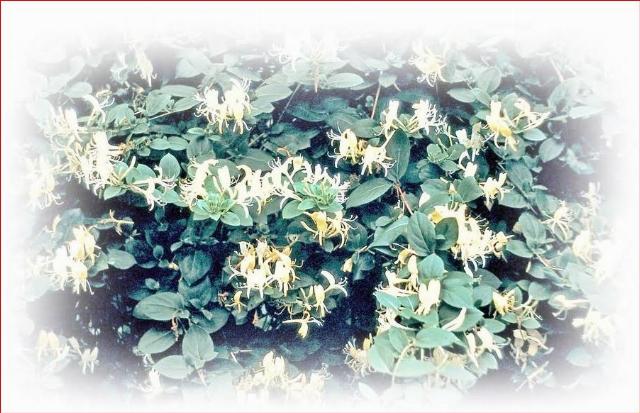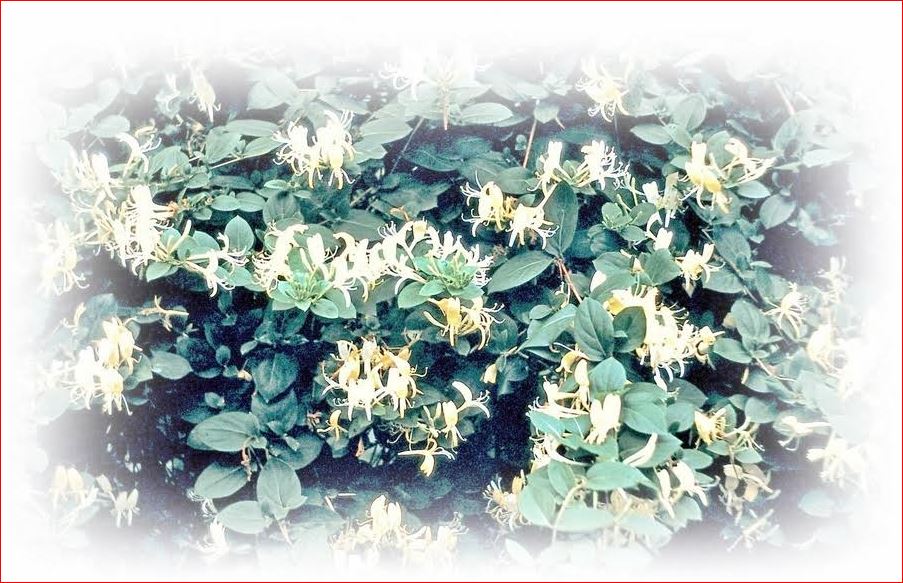

Photo Credit:honeysuckle flowers
anthony j deblasi
Rest and recuperation for the soul is necessary when the whole world seems to be against us. At such times, spiritual renewal becomes as vital as breathing.A moment in my life that returns to me as a kind of blessing is connected in an odd but wonderful way to a poem by Henry Wadsworth Longfellow. In “The Day is Done” he speaks of simple, heartfelt poems – he calls them “songs” – that
. . . have power to quiet
The restless pulse of care,
And come like the benediction
That follows after prayer . . .
and gush from the heart “as showers from the clouds of summer, or tears from the eyelids start.”
It’s a poem that more than once has moved me close to tears. I think that is because in its lyrical way it moves the soul to its depths, where one can feel the beautiful, the true, and the good come together.
In its unique way the poem evokes an incident that “made my day” during Army Basic Training when a war raged in Korea, in the early 1950s. The connection stems from the poem’s use of the word “songs.” Of the many that return to this old musician’s head, the title of one, “Honeysuckle Rose (1929),” always comes back to me changed to “Honeysuckle Road.”
In that guise I am taken back to a moment of deep serenity in the hectic days of Army Basic Training.
<img alt="Honeysuckle flowers" captext="anthony j deblasi” src=”https://conservativenewsbriefing.com/wp-content/uploads/2025/01/meditation-on-a-poetic-incident.jpg” width=”600″>
Image: Anthony J. De Blasi // by permission
On a weekend pass in Augusta, Georgia, I and a platoon buddy walked along a peaceful road leading to the border of South Carolina, nearby. It was late spring and the road was bordered with a heavy growth of wild honeysuckle filling the air with a heavenly scent from its flowers. When we stepped into South Carolina, we paused to take in the view. Across a large expanse of grass, sitting on a porch, was an old black woman peacefully smoking her pipe. The scene struck a chord of tranquility and beauty that sank deep into the spirit.
On our way back, a car with Georgia license plates stopped to offer a lift. The young man and woman inside were newlyweds. Their gesture came to my mind as evidence of “Southern hospitality.”
Recalling the sights and events (and the blessings) of that walk would help lighten my spirit when things got rough . . . again and again . . . and through the years.
My brother, a World War II veteran (deceased), would respond to an account like I’ve just related by asking “What’s the moral to the story?” Looking beneath the surface of things is a habit of his that must have rubbed off on me. It may be why I draw the Longfellow poem and my 1950s “moment of poetry” in Georgia together into a unity that is less than obvious . . .
To my mind something deeper dwells in both the poem and the incident than a need for relief from “the cares that infest the day” (Longfellow’s words). Their “poetry” isn’t just about rest and recuperation from physical and mental stress but also about R&R for the soul. Attending to this greater need helps cope with the world we’re born into, even when at times it seems to be against us. At such times, spiritual renewal becomes as vital as breathing. Without R&R for the soul it is possible to skip life altogether and leave it behind, never having joined it.
For those times when “the whole world is against you,” reaching for and holding onto simple things basic to life can save the day and perhaps a lot more. Heading the list of soul-restoring basics are simple things like the voice of a little child, the sight of a smile or a flower, the sound of a tune, the presence of ordinary folk around you, the power of a hug, the firmness of the ground beneath the feet, the uplift of a prayer. Active attention to such unassuming “givens” can help lift one over the cares and troubles of the day and –– what is more important –– restore the sense of hope.
Soul-restoratives like those mentioned are not to be taken as crutches or distractions but as calls to the will to act in accordance with the reality that life is stronger than its twists, bumps, heartache, and brain-draining machinations. A return to one’s senses can indeed be painful. But the alternative is pain of a worse kind, for which there is no effective cure.
A light on the subject comes from one of Ralph Waldo Emerson’s insights: “The problem of restoring to the world original and eternal beauty is solved by redemption of the soul.”
What better way than by switching on the light of God with the many simple wonders of His Creation?





